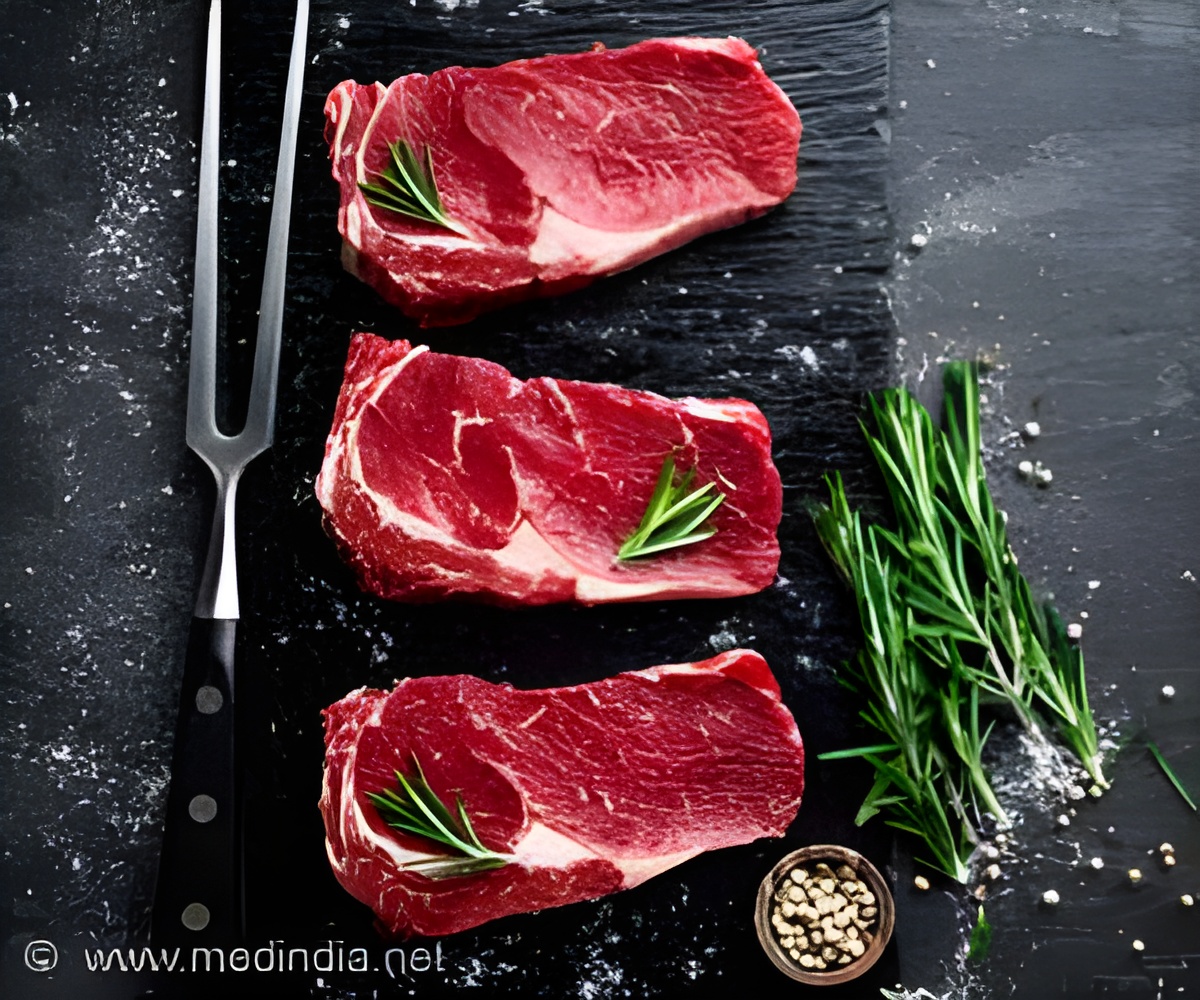Red meat rich diet as the primary protein source significantly increases circulating TMAO levels, compared to diets with white meat or non-meat as protein sources, found study.

‘Chronic red meat consumption enhanced the production of TMAO by gut microbes and reduced the kidneys' efficiency of expelling it.’





Both enhanced production and reduced elimination caused by a red meat diet contribute to elevation in TMAO levels, which has been linked to the development of atherosclerosis and heart disease complications. High levels of TMAO in the blood have been shown to be a powerful tool for predicting future heart attack, stroke and death risks, according to previous research initially spearheaded by Dr. Hazen and his team, and subsequently replicated around the world. TMAO testing is now in clinical use as a result. Dr. Hazen chairs the Department of Cellular and Molecular Medicine in Cleveland Clinic's Lerner Research Institute and is co-section head of Preventive Cardiology & Cardiac Rehabilitation in the Miller Heart &Vascular Institute.
The study included 113 participants who sequentially (in random order) were provided complete meal plans prepared using either red meat, white meat or non-meat (mostly vegetarian) protein sources as 25 percent of their daily calories. All participants had a wash-out diet in between meal plans.
After one month of the red meat diet, the vast majority of study participants experienced an elevation in TMAO levels in blood and urine. On average, TMAO levels in the blood increased approximately 3-fold during the red meat diet, compared to the white meat or non-meat diets, with some patients showing over a 10-fold rise. Similar increases were observed in the urine. However, after patients stopped the red meat diet, TMAO levels in the blood and urine subsided over the following month.
The study also revealed the unanticipated finding that a participant's chronic dietary choices impacted kidney function by changing the effectiveness of the kidneys to expel compounds. For example, while a red meat diet decreased TMAO excretion, the red meat diet increased the excretion efficiency of carnitine and other carnitine-derived metabolites.
Advertisement
In another study, published today in the Journal of Clinical Investigation, Dr. Hazen and his research team revealed a potential new target for preventing cardiovascular disease by drilling deeper into a gut microbial pathway that converts carnitine into TMAO.
Advertisement
Dr. Hazen's team compared the impact of daily oral carnitine supplements on omnivores versus vegetarians/vegans. At baseline, vegan/vegetarians showed limited ability to produce TMAO from carnitine while omnivores rapidly produced TMAO. After one month of supplementation, both groups showed an increased capacity to produce TMAO.
"It is remarkable that vegans and vegetarians can barely make TMAO from dietary carnitine. The striking new finding about the pathway induced by ingesting carnitine - even if only provided as a supplement in a capsule form - provides important insights about new interventions to inhibit TMAO, which may help reduce risks for cardiovascular disease," said Dr. Hazen, who holds the Jan Bleeksma Chair in Vascular Cell Biology and Atherosclerosis.
"By uncovering this new pathway, we can potentially develop new treatments to interrupt this process before both the development and progression of cardiovascular disease."
Source-Eurekalert















